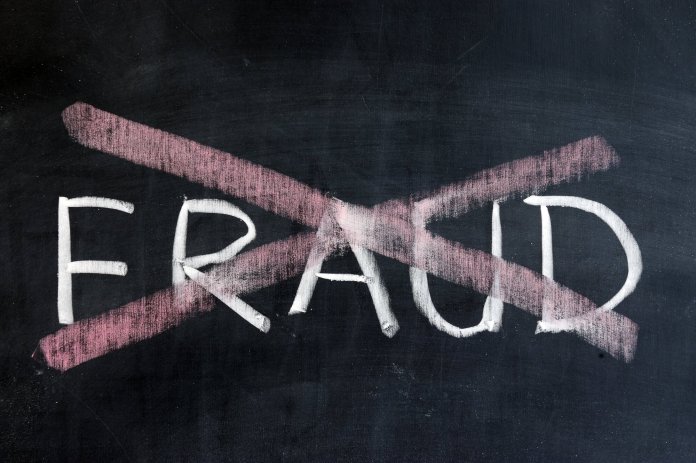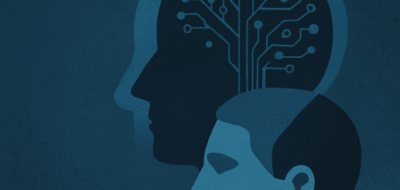Blockchain can definitely affect social organizations. Can the new technology be used successfully in public administration as well? Will it help governments inspire trust in citizens and make the latter feel they are better represented in public institutions?
If blockchain becomes universal, we will be able to declare our taxes more conveniently, buy houses faster and more securely, exercise better control over the decisions of public administrations and store and make available our data in public registers. Public administrations and even state governments will gain a tool to better manage not only the economy, but also public interest. In keeping with its obligation to use funds efficiently, the public sector could generate huge savings as, by definition, blockchain cuts out costly intermediaries from the transaction process. Hence, benefits could be gained by both the average citizen and society at large. What is crucial in the context of public administration is that blockchain can be highly trustworthy. Any two parties who have never seen, known or even trusted each other can conclude a contract confident that no fraud is possible.
We are victims of documents
What are the expectations of the citizens who approach a public servant? The answer is simple. They want clear legislation, a service delivered in a friendly and competent way, efficient procedures, the confidence that their personal data will not be abused, and low transaction costs.
Is all this delivered to regular citizens? Unfortunately, the question is purely rhetorical. The reality is very different and fraught with complex document flows, repeated prompts for the submission of personal data in completing even the simplest formalities, and constant changes to legislation. The public servants across the desk devote most of their time to handling documents. What is worse, the documents come in different formats that are difficult to harmonize and require extensive safeguards and administrative procedures. Public servants are forced to grapple with constantly changing legislation and its interpretations. This makes for a very complicated environment that erodes trust between the parties involved. And yet, things could be very different.
Can the chaotic system be changed?
Managing dates of birth and death, civil status information, business registers, tax liability and insurance details takes massive information silos. More importantly, information flow rules must be codified, which is not an easy task in a constantly changing environment. To complicate things even further, individual public administration sectors use their own standards, often incompatible with those applied by other organizations. Even the most innovation-friendly governments find it daunting to manage data flows, process and validate data, and ensure IT security and safe disclosures to multiple parties. Could a universal system simplify data flows between citizens and public administration, offering convenience and a sense of security to both sides? Yes, it could. All that is needed is the political will and a green light from decision-makers. Every institution that handles invoices, documents, access codes and authorization tools should naturally be interested in the opportunities offered by blockchain.

The biggest benefit of blockchain is transparency
What makes public administration unique is its geographical distribution, the huge responsibility it shoulders, its mission and its inherent need for transparency. In one of my previous articles, I have already emphasized that blockchain’s transparency makes it perfectly suited for use in areas where transparency is critical. This is precisely why the technology might be of great interest to public institutions and offices. Not to mention us, the citizens.
Blockchain can also help respect one of the citizen rights enshrined in our political system, namely the right of access to public information. Besides benefitting governmental agencies and people in charge of issuing licenses and administrative authorizations, blockchain could help regular citizens.
Its very practical application could be to simplify relations between citizens and public administration bodies, protect critical public data and facilitate asset management. Deployed on a mass scale, it would provide every person and organization with access to virtually all the data that concerns them. The most obvious case is that of linking basic personal data with records of previous interactions with organizations and offices, with the respective data stored in an encrypted database. End users could authorize offices to access specified parts of such individual ledgers. Such access could be enabled with cryptographic rules set up in blockchain that would govern the use of public and private keys.
A clear security system
Security is paramount for both financial operations and the work of governmental authorities. Any technological solution used for these purposes must guarantee security. However, even the most sophisticated encryption systems can never ensure absolute security. With that in mind, we must remember that blockchain is among the technologies that can efficiently eliminate the threats that result from data tampering. This public ledger technology stores transaction data on multiple computers in a network in chronological order. In a nutshell, each transaction is recorded in the chain of what is known as blocks based on the information encrypted during previous transactions (to learn more about how blockchain works, see my previous articles). Anyone seeking to modify a transaction would have to modify all previous records throughout the blockchain. This would require the consent of other network users (blockchain is consensus-based), enormous computational power (comparable to that of the entire Internet) and specialized quantum computer algorithms (luckily, this technology is still in its infancy).
The reason for this is that there is no central agent to decide on the legality of system changes. Instead, all computers in a chain follow a protocol, setting the stage for automated consensus. Through this mechanism and its encryption system, the blockchain upholds the highest security standards. Having said that, lawyers and legislators must consider several key questions regarding the practical use of blockchain. To what extent are smart contracts legally binding? Will blockchain data be admissible in court? Do blockchain encryption methods require extraordinary standards if the technology is to become a universal ledger?

Estonia and Sweden already using blockchain
Even though the lawmakers tend to lag behind new technologies, those who trust the technologies can overcome all odds. Such was the case of Estonians who resolved to adopt blockchain in their public sector and who have been testing blockchain solutions for many years. The Estonian government is currently using the Keyless Signature Infrastructure (KSI) to secure nearly all public data. This enables public servants to monitor dataset modifications. They can see who changed a record as well as how and when it was changed. Among other applications, KSI is used by the Estonian health care system to run electronic IDs. The Estonian “e-residence” system helps authenticate commercial contracts, register companies, and compile eligible voter lists.
The decision to use blockchain has been made also by the government of Sweden, a country where real estate transactions involve huge amounts of money (their total volume in Sweden exceeds the country’s GDP). Real estate trading in Sweden is intense and essential for the country’s economy. Nevertheless, documenting property rights transfers has always been painful for the citizens as it entailed exchanging many traditional documents. The Swedish government is now seeking to digitalize the process. It is testing a mobile application that would make transactions easier for all the concerned parties, whether it is sellers, buyers or banks. Blockchain would help register changes in real property status. This would render obsolete the paper documentation which runs into hundreds of pages. Importantly, sales closures, which often take weeks to complete, could be done in a matter of hours. This is possible thanks to the blockchain-based smart contract mechanism. Every real estate buyer could use an algorithm that defines conditions necessary for completing a transaction. If all these conditions are met, and the algorithm confirms it, property rights can be automatically transferred to the new user. This would fully eliminate the need for intermediaries, who now generate or monitor complicated legal provisions.
Others to follow
Solutions similar to the Swedish ones are currently tested in Georgia. Through its National Public Registry Agency, the Georgian government is seeking ways to use the blockchain to register real property and land ownership. The U.S., in its turn, has seen strong lobbying for the adoption of blockchain in public administration. The potential of this technology is being tested by the General Services Administration, the Health and Human Services Department, and the Department of Homeland Security. In the Netherlands, plans are made to use distributed ledgers in tax offices. No declarations have gone as far as those of the Dubai government which has committed to using the blockchain to run all public services by 2020.

For public servants and voters
In an optimistic future scenario, blockchain will help both individuals and public benefit organizations monitor the government and public servants. Citizens will be more comfortable with the electoral process as blockchain – a register that is both transparent and tamper-proof – will confirm how many votes have actually been cast. It is equally feasible for blockchain to eventually combine the properties of an ID, anonymous voting software and business and legal applications to enable us to sell and/or purchase company shares and real estate. Once blockchain comes of age, the authorities responsible for a wide range of public services will be free to apply it. Blockchain can automate data flows related to individual citizens, making the payment of social benefits and other allowances much more efficient. Public servants would be able to simplify public procurement and tendering by having blockchain automatically check bidder credibility. Released from the burden of completing traditional documents and forms, individuals and companies would be free to better utilize their time. There are indeed scores of potential applications.
Rules and standards needed
According to McKinsey, over the last two years, venture capital funds have invested more than US$ 1.2 billion in companies (predominantly start-ups) dedicated mainly to developing blockchain technology. The fact that many developers and innovators working on blockchain are small entities provokes irrational reluctance from its potential users. Many consider small but flexible start-ups employing excellent teams of developers to be too unreliable. And yet, the appetite for blockchain keeps growing. The idea of a universal ledger appeals to the imagination of financiers. Another important beneficiary could be the energy sector. If the sector continues to decentralize, blockchain will be ideal for supporting free energy trade. The technology has gained such status that governments, compelled by economic and logistic arguments, are now discussing the decisions and solutions necessary for its adoption. Blockchain simply makes for better management of information related to the life of society. All this means that blockchain is becoming a challenge for decision-makers across diverse fields.

If blockchain is to change reality, clear universal standards governing the deployment and use of private and public blockchains need to be adopted urgently. Similar standards have once been required for the Internet. We can only hope that blockchain standards are developed and deployed sooner rather than later.
. . .
Works cited
Interview conducted by Stanford University professors Huggy Rao and Robert Sutton and the Quarterly’s editor in chief, Allen Webb, Staying one step ahead at Pixar: An interview with Ed Catmull, link, 2018.
Jesse Morris, Rocky Mountain Institute, Blockchain in Energy: Powered by EWF, link, 2018.
. . .
Related articles
– Blockchain poised to shake up our lives
– Will quantum computers doom the blockchain?
– Artificial intelligence is a new electricity
– Why do we care about blockchain technology?










JohnE3
Norbert – thank you for great read
Tom Jonezz
It’s quite easy to understand this simply by comparing number of blockchain supporters divided in three groups: technical people, non-technical people and conmans. Any truly great technology would have a lot of technical people, many non-technical people and few conmans. Blockchain however has few technical people, crazy amount of non-technical people and a lot of conmans.
Zidan78
Blockchain creates new tools to constrain perverse incentives, though it also creates some perverse incentives of its own.
The success of blockchain (or any incentive constraining technology such as laws or social structures) will be dependant on its value for managing perverse incentives. This is roughly the difference of the perverse incentives it eliminates less the perverse incentives it introduces.
Current systems achieve value through very deep layering to create accountabiity (which tends to fail towards the top, as .01percenters tend to distort the social fabric that they touch and create perverse incentives of their own) .
Blochain tech potentiates strong incentive management without the extensive infrastructure depth, with each instance including a self contained (if brutally simple and inflexible) judiciary and enforcement component, free of internal perverse incentives. This offers huge potential efficiency gains…. But these are tools we are just beginning to understand how to integrate into our existing incentive management systems.
John Accural
That’s the philosophy behind a pretty large portion of investments in general to be honest. It’s a little harsh to say that 99% of the enthusiasm comes from a chance to strike it rich. Blockchain can be help fix important problems and in the end save us money. I’d say that the excitement about this new technology, as opposed to simply feeding into the “get rich frenzy,” is the main driver of enthusiasm.
TomCat
The strength of the blockchain is that it extends the uses of cryptography in interesting new ways. Blockchain enthusiasts played the role that Schneier played in 1994, hyping the capabilities allowed by the blockchain to the absolute extreme (and then a fair distance beyond) of what could be accomplished, ignoring the practical realities on the ground. Now the author of this article is playing the role of the grumpy newspaper editorialist of 1994: “These futurists are saying that we’re going to be doing our banking and shopping online in the coming years! Bah! You just can’t trust a computer on this so-called ‘Internet’ in the same way as you trust your local shop-keeper!”
AdaZombie
Cryptography is a branch of mathematics. And like all mathematics, it involves numbers, equations, and logic. Security, palpable security that you or I might find useful in our lives, involves people: things people know, relationships between people, people and how they relate to machines. Digital security involves computers: complex, unstable, buggy computers.
Mathematics is perfect; reality is subjective. Mathematics is defined; computers are ornery. Mathematics is logical; people are erratic, capricious, and barely comprehensible.
SimonMcD
Although forgery of documents is a concern/problem and DLT, along with blockchain (1st Gen DLT), can provide an immutable and secure platform to store PII data, oracles (entry points of data onto a distributed ledger) can be compromised.
If PII is controlled solely by a corrupt gov’t and does not allow for varification by the person to which the PII belongs, then this leads to potential forgery by the corrupt gov’t for nefarious purposes of the corrupt gov’t. China, Iran, NoKo, Venezuela, and many other countries come to mind that could/would manipulate a global or country-wide identity distributed ledger ID system for their own gain and control (i.e., labeling someone a terrorist who simply doesn’t agree with the views of a country). “Power corrupts, but absolute power corrupts absolutely.” (Lord Acton)
Oscar P
So you are managing a supply line with multiple traders? Are these traders the miners in your block chain? And when an item moves from one trader to another, is that a transaction that goes on the chain? How do the miners verify that the transaction is legitimate? How do they know that item really did change hands, and do so in a distributed, trust-free manner? Also, did you write a block chain from scratch, or use an existing one?
Oscar P
I don’t see myself trusting anyone enough to audit smart contracts. A perfect contract requires perfect trust. Even if I thought the auditor has perfect intentions, nobody has perfect competence.
But I suppose if I was living under an undemocratic and oppressive regime I’d trust a smart contract audited by someone I trust more than a contract within the legal framework of that regime.
I think the core question is, who do you trust enough to make an overriding decision regarding you contract. If that answer is “the state”, blockchains have little value (in the space of contracts and currencies). If the answer is “no one”, then blockchains are a good solution.
John Accural
Norbert. Great read. Thank you
TomK
In real terms however this is impossible since that would represent about half a billion dollars worth of computing power. Its also possible to see everyone’s share of network hash rate so its impossible to do this covertly. Even then, once you achieved 51% (and probably before you got that far) you would get all sorts of DoS attacks because it would be obvious what you were trying to do. And even if you somehow pulled it off, everyone would know you did it. And the gain from getting control over the network for 10 minutes just isn’t worth it anyway. Half a billion dollars of computing power, sustained, for 10 minutes and you get to do one double spend. Well done.
The economics of a 51% attack just do not make any sense its incredibly expensive to do, its impossible to accumulate the power covertly, and even if you do, as soon as you did it everyone sees you do it, and the economic rewards are really not all that great. There’s just no point in attempting it.
Adam Spark Two
While there are a number of things in this article I’d like to comment on, this quote from the article actually concerns me: “All information used to identify citizens and any other citizen-related data could be kept in a single global decentralized blockchain-based peer-to-peer database. Forging a document would require breaking into and modifying a blockchain, which is practically impossible.”
TomCat
I don’t get all the hate. Blockchain has proven to be immensely useful for a range of industries from energy, securities trading, interbank exchanges and currencies.
Is it a buzzword? Most definitely. Overhyped? You betcha. But useless? Not even close.
I have been working in blockchain space for ~3 years now and the outlook has never looked more optimistic. Luckily, the ICO bullshit is winding down and the scams are getting fewer and fewer. Like any new technology it has a lot of growing pains, but it’s very useful.
The fact remains that a lot of intermediaries can be replaced by computational trust. Energy trading is one of the most obvious cases (disclaimer: I’m the CEO of an energy space startup, we have a couple of blockchain features), but I’ve done work at banks, brokerage houses, legal offices, etc… Some super interesting use-cases exist, not all involve decentralisation, not all need public blockchains, but each benefits from a subset of the functionality.
Zoeba Jones
Even a quick poll of your colleagues/relatives and a quick skim of recent news will reveal that banks are actually not “really” bad, they are at worst “moderately” bad and at best “a little” bad. I wager there is a very high chance that none of your direct contacts lost any money in bank holding in the last decade.
What I’m saying is that any serious competitor to banks must beat this statistics by a noticeable margin to succeed.
John Accural
I don’t disagree with you entirely but this is literally the driver behind 99% of human behaviour.
You don’t go to university and work your way up the ranks of some shitty job for fun. You’re do it to put yourself, and your family, in a better place financially.
I’ve been involved in blockchain for a while now (coming up on 10 years) and it’s never been about the money. Maybe the ≥2016 influx sees it slightly differently, but that’s inevitable at some stage. Plus you’re only hearing from the 5% who are vocal, and generally snake oil salesmen.
Acula
No, they won’t let us defy the laws of physics.
The current written laws of physics are just theories. If something that we see works differently than written laws of physics then that means written laws are written wrongly.
I wonder why people when facing situation that is different to their expectations tries to defend their theories as TRUTH and says:
That’s accidental case.
That’s defy laws of physics/nature/business/marketing/….
That’s …
TomCat
What this article is saying is that the long term value and application of blockchain itself is minimal. It solves very few existing problems. For most business applications, blockchain is no better than a database or spreadsheet program. Blockchain is a nifty tool in certain niche circumstances, but it’s not the transformative technology it’s being billed – and often valued – as.
ZoraBora
Several U.S. firms seeking regulatory approval to launch a bitcoin exchange-traded fund (ETF), has estimated that 95 percent of bitcoin trading volumes are faked and only 10 exchanges publish reliable data about volumes on their platforms, without inflated numbers.
AndrewJo
At the very end it’s quite a simple database. Still waiting for killer app
Zidan78
Not for a public sector only
SimonMcD
Nice read. Inspirational. Thank you
AdaZombie
Blockchain today may be compared to what the Internet was in the early 1990s. Commercial enterprises and venture capital (VC) firms have invested more than $1.4 billion1 in blockchain since 2014, rivalling Internet investments in the early ’90s. Funding into blockchain companies is already up, to USD 2.4bn in 2017, with 25% coming from Venture Capitalist investment and 75% from Initial Coin Offerings (ICOs)2. While we have witnessed how the ‘Internet of Information’ has changed our society over the past two decades, we are now entering a phase where blockchain may do the same by ushering in a new paradigm comprising ‘Internet of Trust’ and ‘Internet of Value’. While the financial services industry has been one of the first adopters of this technology, applications abound in other industries as well. Blockchain could well be transformative for the global economy as a whole.
https://www2.deloitte.com/content/dam/Deloitte/in/Documents/public-sector/in-ps-blockchain-noexp.pdf
TomCat
What this article is saying is that the long term value and application of blockchain itself is minimal. It solves very few existing problems. For most business applications, blockchain is no better than a database or spreadsheet program. Blockchain is a nifty tool in certain niche circumstances, but it’s not the transformative technology it’s being billed – and often valued – as.
tom lee
Kudos !!!
Adam Spark Two
Crypto is an intersection of multiple disciplines, Nick Szabo has been talking about Smart Contracts since at least the mid 90s: http://www.fon.hum.uva.nl/rob/Courses/InformationInSpeech/CDROM/Literature/LOTwinterschool2006/szabo.best.vwh.net/smart_contracts_2.html
The concept of eCash has been discussed for a long time too e.g. see this by the NSA (National Security Agency) from 96: https://groups.csail.mit.edu/mac/classes/6.805/articles/money/nsamint/nsamint.htm
There were a number of precursors to this, I just have these two links to hand.
Robert Kaczkowski
Great article. Thank you Norbert
Zoeba Jones
Good one. Indeed
Zoeba Jones
There cannot be a decentralized system of trust. Any form of asymmetrical trust always requires either a third party to verify or two parties that trust each other must interact directly.
Look at the Root CA’s for example. Without a root “vouching” for the validity of a cert, SSL is entirely useless.
John Accural
There are problems that can be solved through blockchain, just not cryptocurrency. Take a look at etherium DAPPS, and solidity.
Zidan78
I don’t trust people. They’re easily corrupted and emotional. Those who seek power are usually those who want it for personal reasons. From the government to the individual, it’s a fractal pattern of corruption at the expense of others.
Banks employ thousands of people and spend millions of dollars on security and keeping their pockets full. It’s a business, I get it, but if your entire business model revolves around secrets and deception then it’s not really a solid one.
Crypto complely removes the corruption from this equation, 100%. As well as doing away with the need for black box security and thousands of resources dedicated to keeping something physical safe.
In my opinion is the best thing to ever land. I could be wrong but I’ve been in the IT game for 30 years and I’ve never seen anything more needed in this space.
I love hearing well thought-out counter arguments, so please feel free. I’m not living in a bubble of my own ego so please discuss.